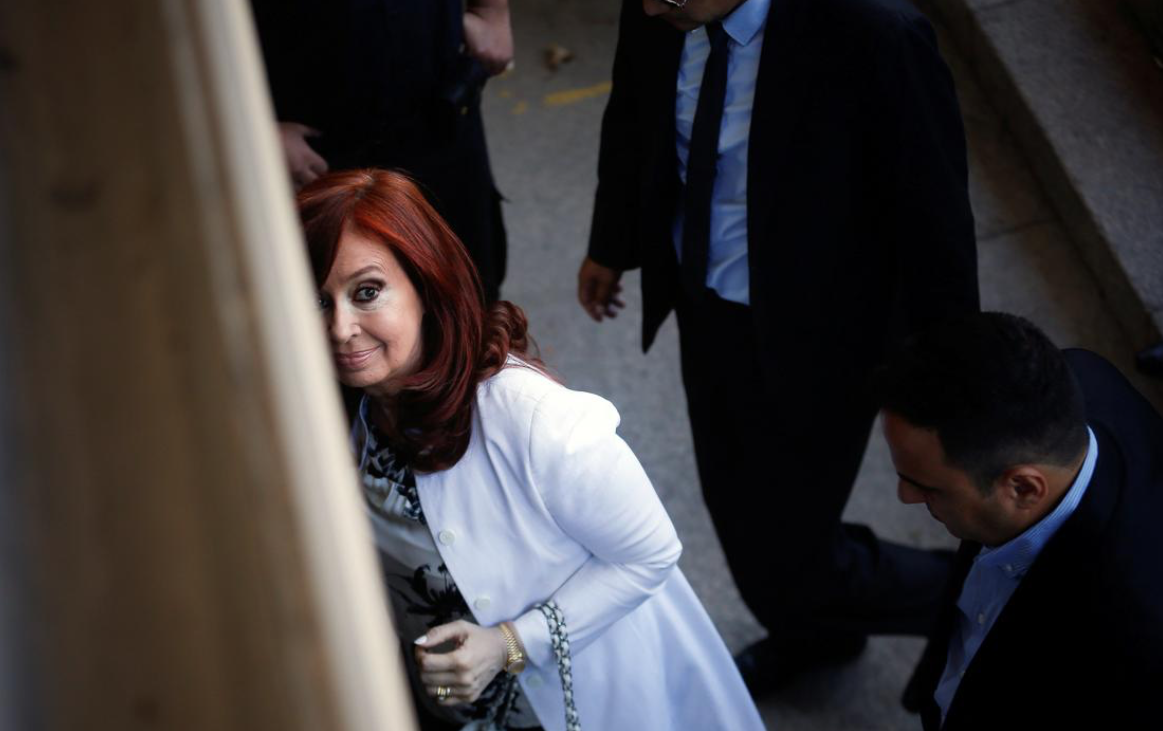A new barrage against the Judiciary in general, and particularly against the Supreme Court of Justice has been unleashed from the Kirchnerist sector of the Argentine Government and from Vice President Cristina Fernández de Kirchner herself, in a striking manner, given the depth of the economic crisis Argentina is going through.
After the electoral defeat of 2015 and the inauguration of the government of Mauricio Macri, a series of legal cases were opened against Cristina Fernández de Kirchner, the common denominator of which were accusations of corruption, basically involving public works. Although some cases were eventually acquitted, others continued, and several of them were even merged into a single case.
During that period, Argentines saw through the media some videos in which children of businessmen linked to the Government counted bags of money and in which a former official threw a bag in a convent which was later proved to contain nine million dollars. It was also found – inside a bank safe deposit box – almost five million dollars in the name of the former President’s daughter. In short, a series of evidence that sustained, and sustains, the judicial process until today, and the structure of the accusatory plea of the Prosecutor’s Office that is being produced this month, which is estimated to last at least two weeks.
Kirchnerism absolutely invokes lawfare, a political figure that developed in Latin American politics to refer to the judicial persecution of popular presidents. The opposition warns that the evidence of the process shows blatant acts of corruption during the mandates of Cristina de Kirchner.
This is the context in which Kirchnerism, often followed by Alberto Fernández’s government, denounces political persecution with judicial tools against Cristina de Kirchner. Even this tension led to the change of the Minister of Justice, with the departure of a renowned jurist, Marcela Losardo, who was close to Alberto Fernández, and the arrival of a politician, Martin Soria, who responds directly to Cristina de Kirchner. Although this change was judged by the extended opposition as a way to put an end to the judicial cases, at present they continue and are one step away from a verdict.
Given this failed attempt to intervene in the decision of the body, Kirchnerism is currently proposing an expansion of the Supreme Court from five (current number) to twenty-five members, one Supreme member for each province, with the aim of diluting the process. This attempt, however, has little chance of succeeding, since the ruling party does not have a majority in the Chamber of Deputies.
What are the possibilities in view of the new attacks on the Supreme Court?
In the first place, although Cristina de Kirchner’s fear and her political sector increase in view of the imminent end of the process and a possible guilty verdict, of all or part of the accusation, she has and will surely have parliamentary immunity until the next presidential elections in 2023.
This fear, moreover, is not focused on her figure, since the process involves her daughter Florencia, who has always been away from politics and public exposure, and numerous former officials of her former government, many of them already serving sentences in prison or under house arrest.
On the other hand, it may be that this new offensive on justice has the implicit intention of removing Cristina de Kirchner and Kirchnerism from the center of politics. This may occur given the current economic crisis and the risk of an exchange run and a possible devaluation, thus, allowing the crisis to be absorbed by the political sector of the government that responds to Alberto Fernández.
Finally, the idea of a possible conviction that would lead to a political proscription of Cristina de Kirchner for the presidential elections of 2023, preventing her from the possibility of a direct candidacy, which would cause direct damage to the electorate of her own sector, has begun to be timidly mentioned.
In short, the mega-case targeting Kirchnerism has already been going on for six years and is coming to an end. Beyond the condemnations that may arise from this verdict, what can be considered almost certain is the major political impact it will cause on the country.
Translated from Spanish by Janaína Ruviaro da Silva











